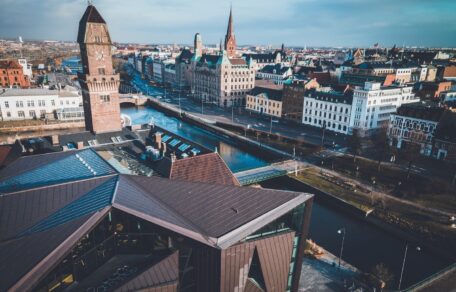The deteriorating security situation in the world may pose challenges for contracting authorities and entities. For a couple of years now, the provisions of Säkerhetsskyddslagen have had to be taken into account in public procurement, especially in certain circumstances. In addition, in April 2022, it was decided to impose further EU sanctions on Russia.
In order to be covered by the Säkerhetsskyddslagen, it is sufficient that an actor, such as a municipality or region, to some part conducts activities that are of importance to Sweden’s security. This may involve, for example, essential activities in sectors such as energy supply, food supply, infrastructure and healthcare. If a contracting authority is covered by Säkerhetsskyddslagen, both Säkerhetsskyddslagen and the Procurement Acts must be taken into account in the procurement (so-called security-protected procurement).
In certain cases, a protective security agreement must be concluded with a supplier. Such an agreement shall contain the requirements on the supplier that are necessary to meet the security protection requirements. Before drawing up procurement documents, it is therefore important to carry out the required protective security analysis in order to be able to assess which security protection requirements are necessary and proportionate in the procurement.
Prohibition as regards awarding and performing contracts with certain operators
As a general rule, the EU’s fifth sanctions package now prohibits, in the case of procurements above the thresholds, the award of contracts and, as of 11 October 2022, the performance of contracts with:
- Russian citizens or natural or legal persons, entities or bodies established in Russia.
- Legal persons owned directly or indirectly by an entity referred to in paragraph 1 of more than 50 %; All stages of the ownership or group structure shall be taken into account.
- Natural or legal persons, entities or bodies acting for, or on behalf of, an entity referred to in paragraphs 1 to 2; Includes agents, agencies or contractors, but also decoy schemes and other schemes aimed at trying to circumvent sanctions.
The prohibitions also apply to subcontractors whose capacity is used in the procurement if they account for more than 10% of the value of the contract. The fact that a supplier covered by paragraphs 1 to 3 may not be awarded a contract shall mean that its tender must be rejected (after the supplier has been given the opportunity to be heard). The non-performance of a contract with a supplier covered by paragraphs 1 to 3 means that the contracting authority may no longer fulfil any of its contractual obligations, such as payments.
According to the Procurement Authority, call-offs from framework agreements are in most cases covered by the sanctions, while the conclusion of the framework agreement itself, on the other hand, as a general rule is not covered by the prohibition on awarding contracts. Anyone who violates the sanctions can be sentenced to a fine or imprisonment under Lagen om vissa internationella sanktioner.
Issues that procurement authorities and entities need to consider before procurement:
- Is it a procurement that requires a protective security analysis?
- Are there any suppliers/subcontractors in ongoing procurements or contracts already concluded that fall under points 1-3? Is it possible to change subcontractor? Is it possible to cancel the contract?
- How should future procurement documents be formulated in response to the sanctions?
- Should the sanctions be extended to apply as grounds for exclusion also to procurements below the thresholds?


